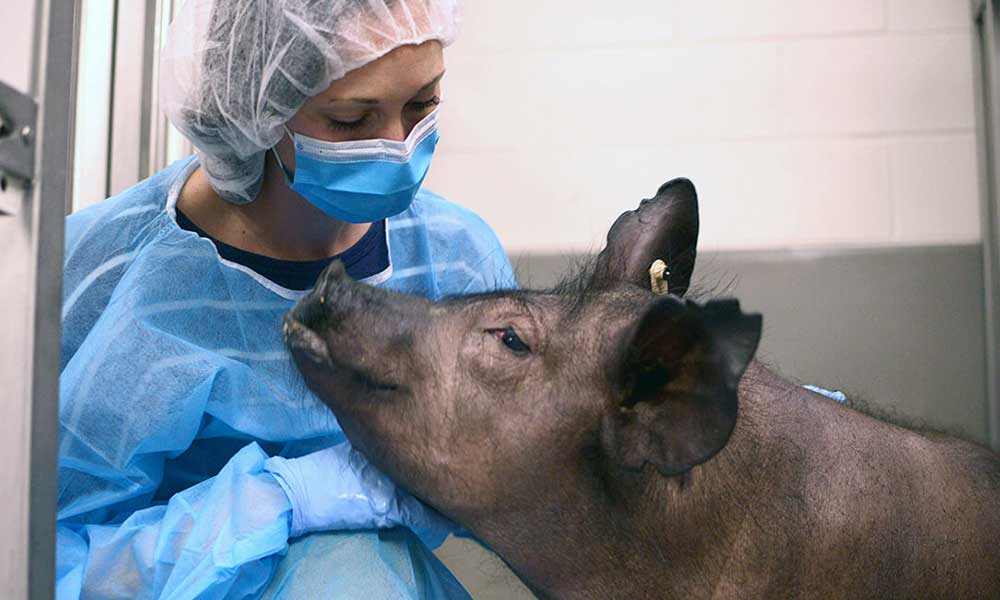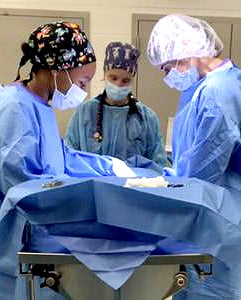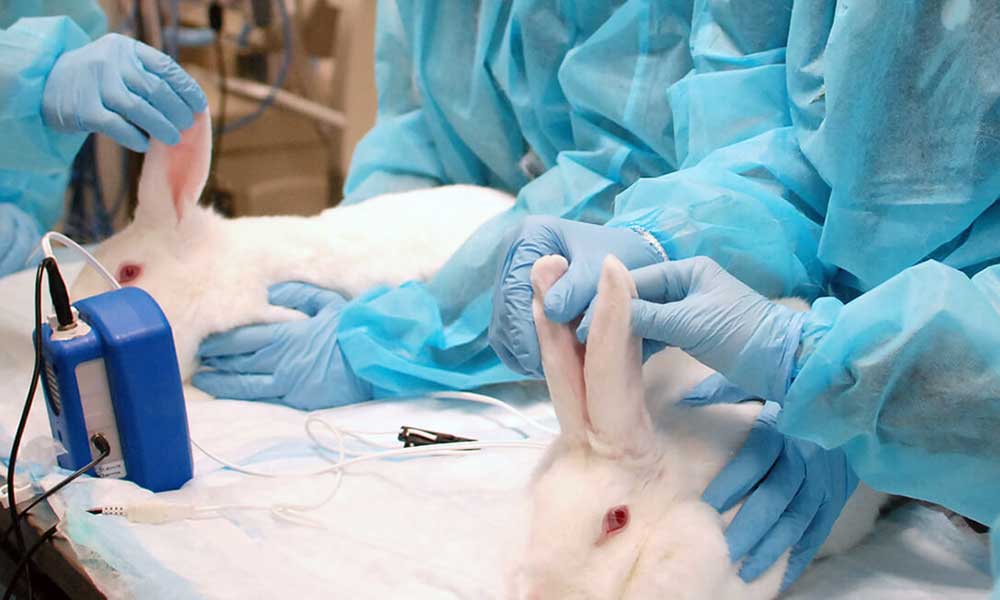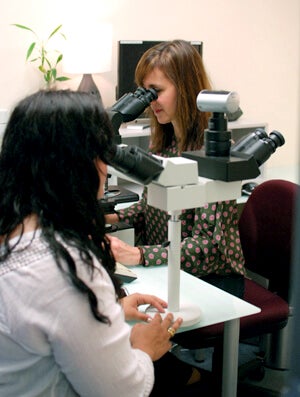
Division of Comparative Medicine and Research
The core mission within the Division of Comparative Medicine and Research (DCM&R) in the Department of Pathobiology is divided into three specific activities:
Veterinary Clinical, Pathology, Diagnostic Services, and Regulatory Support
Pathobiology faculty and veterinary residents within University Laboratory Animal Resources (ULAR) provide veterinary and diagnostic support to investigators throughout the University of Pennsylvania.
Our faculty veterinarians are experts in the comparative medical needs and health care for various animal species, including rodents (mice and rats), non-human primates, dogs, cats, guinea pigs, rabbits, hamsters, birds, and amphibians.
ULAR’s comparative medicine specialists hold advanced degrees in veterinary medicine and science. They are responsible for the care, welfare, and oversight of all research and teaching animals owned by the University of Pennsylvania. All ULAR veterinarians are boarded by their specialty colleges, either ACLAM or ACVP. Our laboratory animal pathologists specifically support rodent diagnostic services, biosecurity, and delivery of necropsy and histopathology services for research animals and exotic species provided through affiliate partnerships.
For these institutional service roles, ULAR veterinary specialists receive faculty support through the Department of Pathobiology and report through the Attending Veterinarian / Executive Director of ULAR & Associate Vice Provost for Research to the Senior Vice Provost for Research, Penn’s Institutional Official. The organization’s structure meets the expectations of legal mandates and federal guidelines for the housing, care, and well-being of research animals.
ULAR veterinary specialists are assisted by a team of talented veterinary technicians, who are essential for additional support to the animal research community. These technicians have expertise in veterinary medical care and anesthesia of various species and are available for fee-for-service assistance to research teams.

Training of Veterinary Students and Residents
Pathobiology faculty and veterinary residents within University Laboratory Animal Resources (ULAR) provide veterinary and diagnostic support to investigators throughout the University of Pennsylvania.
ULAR faculty specialists and support staff from ULAR instruct veterinary students in a diverse range of subjects, including animal biology, medicine, and diseases, by providing didactic courses in the School of Veterinary Medicine. Learn more about training for students and residents within the specialty.

Biomedical / Clinical Research and Consulting With Researchers Using Models of Animal Disease and Disorders
Our faculty veterinarians and residents consult and advise research staff on improving their experimental models and may participate in collaborative research projects.
Significant areas of comparative medicine & research interest within the ULAR faculty group include pathogenesis of infectious disease, improvements in the anesthesia of rodents, surgical models in large animal species, aquatics and amphibians, musculoskeletal physiology, rodent virology, improvements in research animal husbandry, veterinary care of immunodeficient small and large animals, and organ transplantation immunobiology.
- Angela Brice, DVM, PhD, DACVP, Associate Professor of Laboratory Animal Medicine
- Anthony Carty, DVM, MS, DACLAM, Associate Professor of Pathobiology
- Kristin Gardiner, MB, VMD, DACLAM, Assistant Professor of Pathobiology
- F. Claire Hankenson, DVM, MS, MFA, DACLAM, Professor of Pathobiology
- Leah Makaron, DVM, DACLAM, Assistant Professor of Pathobiology
- Kevin M. O’Brien, VMD, MVetMed, DACVP, MRCVS, Assistant Professor of Comparative Pathology
- James O. Marx, DVM, PhD, DACLAM, Associate Professor of Pathobiology
- Vengai Mavangira, BVSc, PhD, DACVIM, Associate Professor of Laboratory Animal Medicine
- Emily Miedel, VMD, DACLAM, Associate Professor of Laboratory Animal Medicine
- Blythe Philips, VMD, DACLAM, Assistant Professor of Pathobiology
- Diane J. Gaertner, DVM, DACLAM, Professor of Pathobiology (Emeritus)
- Abigail L. Smith, MPH, PhD, Honorary DACLAM, Professor of Pathobiology (Emeritus)
- Alyssa Chalmin, VMD
- Kristen Esannason, DVM
- Layne Freeman, DVM, MPH
- Alessandro P. Lamacchia, VMD
- Sheridan O’Connor, DVM
- Samara Schreier, DVM

